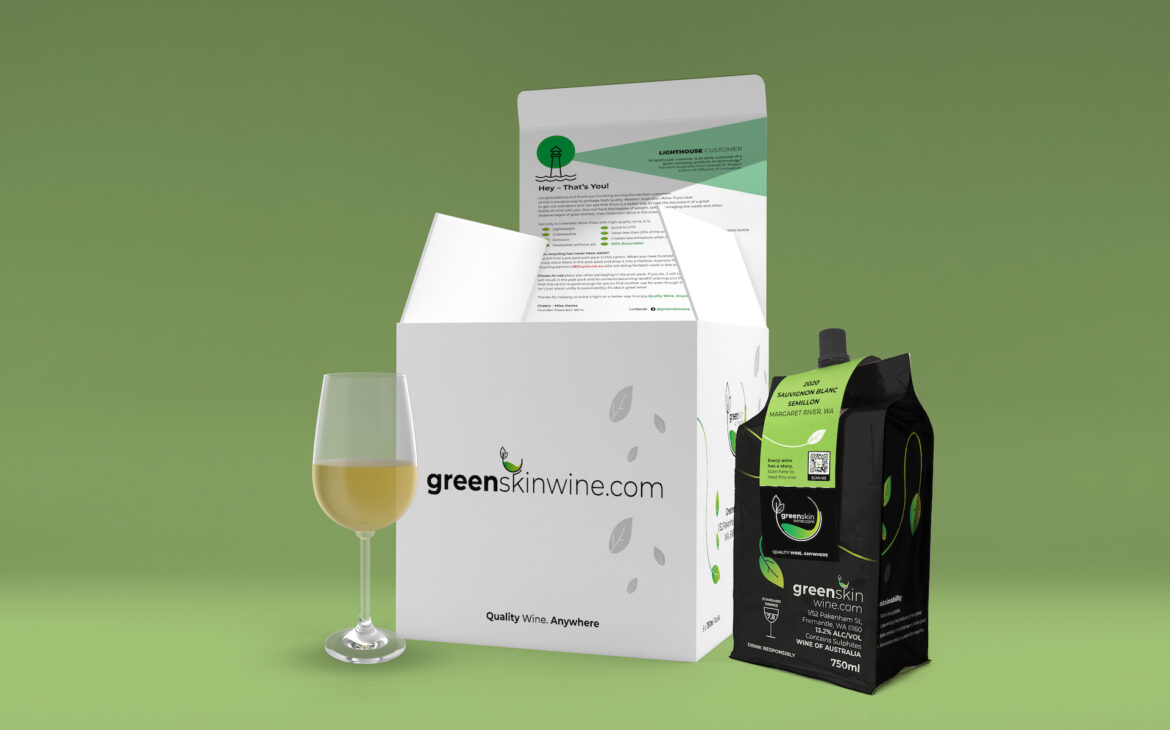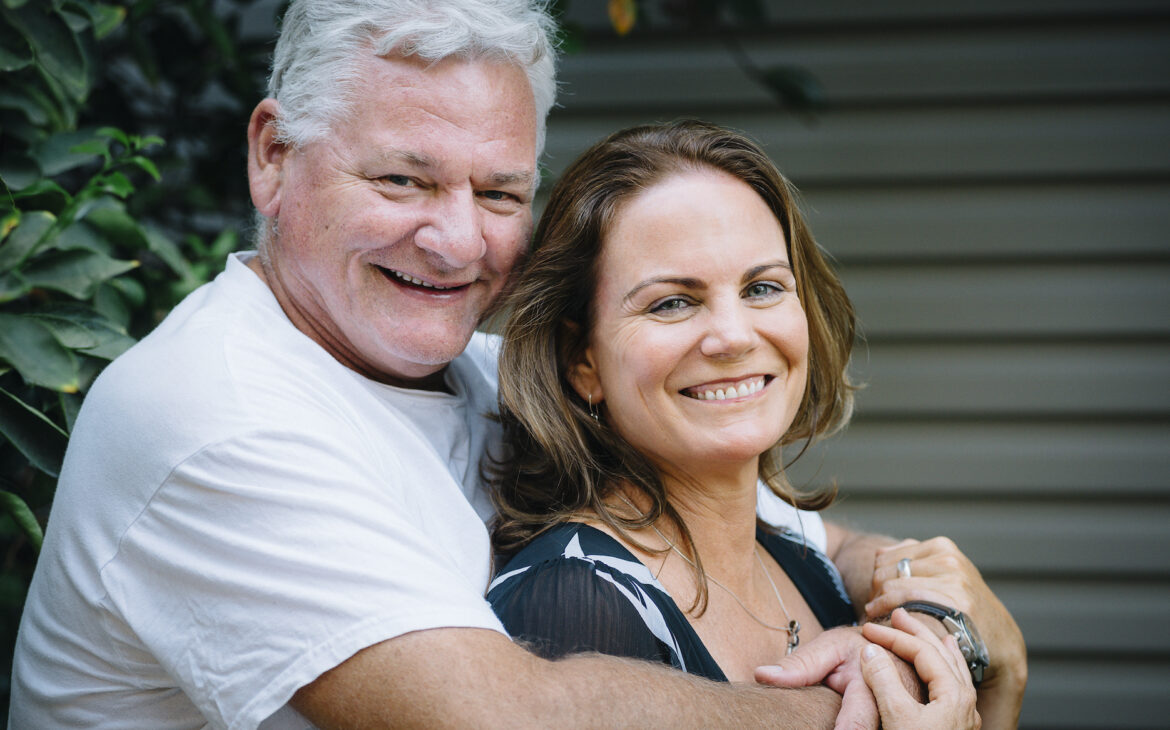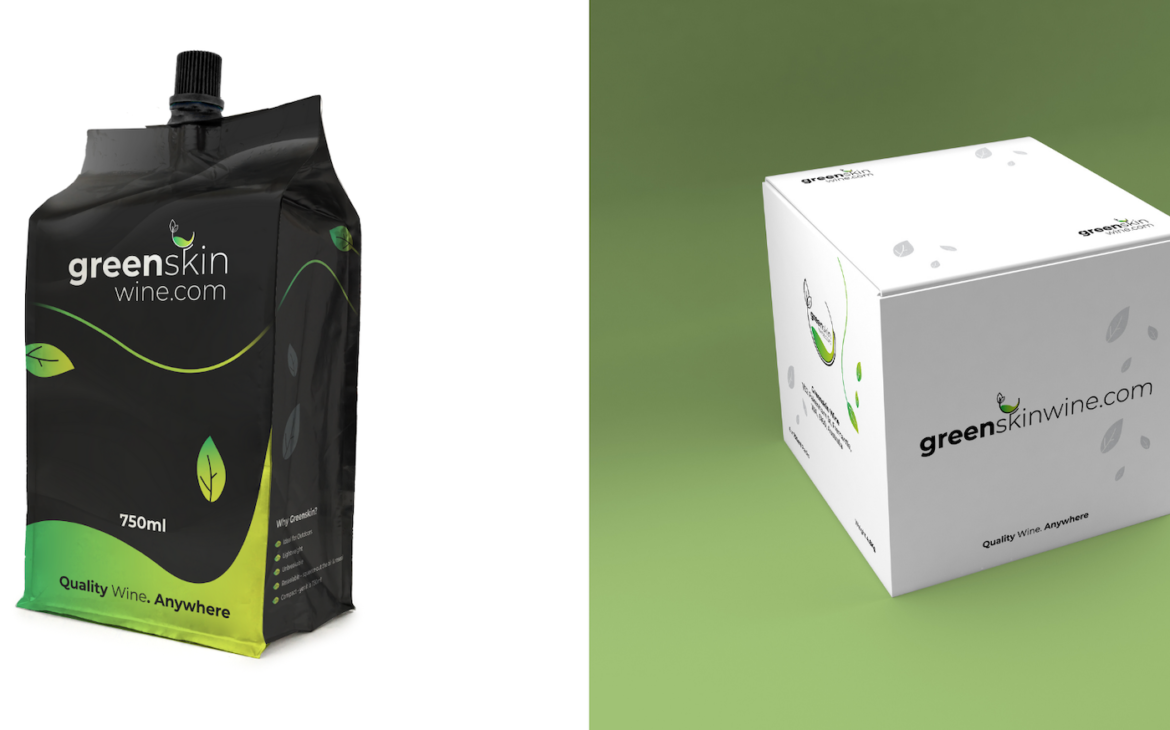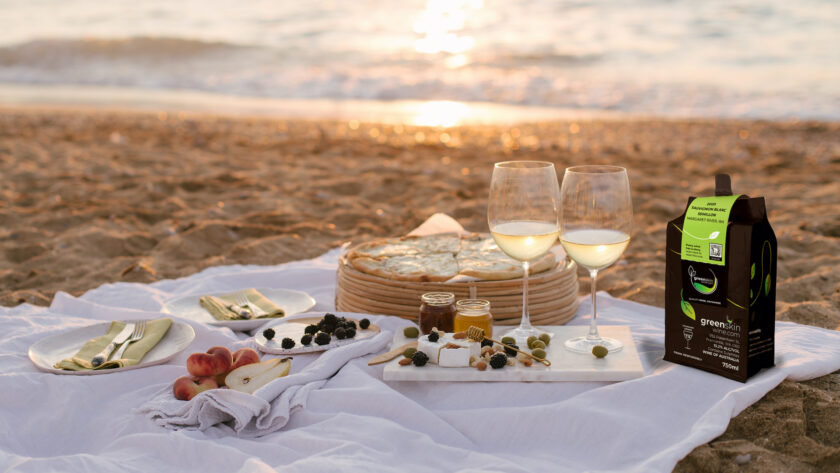It’s never been easier to enjoy a good red or white wine and stay green.
Australia’s Greenskin Wine has launched the nation’s first 100-per-cent recyclable, resealable, glassless way to enjoy wine absolutely anywhere.
Greenskin markets premium quality wine in 750ml soft pouches – unbreakable, quick to chill, resealable, easy to transport, compact, and completely recyclable.
Launched on April 1 this year – the founders are not superstitious – the product has drawn an overwhelming response with sales showing a clear demand for the concept.
Co-founder Mike Davies, an avid sailor, packaging specialist, and winemaker says Greenskin is disrupting the wine packaging industry while providing a real solution to the current glass bottle crisis.

“We knew we weren’t the only wine lovers embarking on land and sea adventures who find traditional bottles heavy, bulky, breakable, and very inconvenient to dispose of during and at the end of your adventure,” said Davies.
“After storing, carrying, drinking, and disposing of more than our fair share of glass bottles, we wanted to create a product that was not only better suited to the great outdoors but kinder to it. Going glassless was our answer.”
Davies and his partner Kim McKee, selected quality, small runs of wine from respected Western Australian wine producers for their first offering to the market. “We are mindful of the damage that could be done by filling a new packaging format with sub-standard wine and have been careful not to take that risk,” Davies said.
The initial range comprises Sauvignon Blanc Semillon, Chardonnay, Rose, Pinot Noir, Syrah and a Cabernet Merlot sourced from the Margaret River and Great Southern wine regions of Western Australia.
Greenskin’s closed-loop system ensures each pouch is 100-per-cent recyclable. Every carton of six pouches includes a prepaid mailer bag so consumers can return the empty pouches to Greenskin’s recycling partner, RedCycle.

Davies says one 750ml pouch takes less than 20 per cent of the energy needed to produce a 750ml glass bottle. An empty pouch weighs less than 60 per cent of a wine bottle – a six pack weighs 4.8kg making it more efficient to ship in terms of emissions.
Davies worked in the wine industry for more than 40 years, with labels including Tyrells, Chapel Hill, and Katnook Estate, before setting up his own award-winning Margaret River winery Sandstone Wines.
In 1989, he founded Portavin, which grew to become Australia’s largest independent wine packaging business, serving many of Australia and New Zealand’s wine-growing regions.
Four years ago he sold Portavin and began to investigate alternative wine packaging, wanting to cater to consumers who enjoy quality wine in outdoor settings and to address the growing concern about the amount of carbon emitted to produce glass bottles and ship them to market.
He believed that soft pouches were a viable alternative if they could be fully recyclable, backed up with a mail-in return concept.
“Forget your disturbing goon-bag memories of yesteryear, this is all about premium quality wine in a convenient, eco-friendly package” he said, conceding that a few people had initially knocked the plastic bag concept for packaging wine – something previously done with four-litre boxed budget wines.
“Yes, goon bags have been around for years, but they have never been 100-per-cent recyclable or filled with premium quality wine,” adds McKee. “We find Aussies are very adaptable to new concepts if convenience and practicality are involved and once they twig about the recycling program, they’re all in.”

Those who have tried the wine – including respected wine writers – report the wines live up to their premium billing.
But some skeptics have asked if the pouch material affects the quality of the wine – it doesn’t.
“We’ve designed every pouch to meet our stringent quality standards, so you can expect the same great body, texture and mouthfeel you would get from wines packaged in traditional glass bottles,” says McKee. “Once people have ordered and tried the wine all feedback has been positive to date. We have received not one negative comment about the wine quality, or the packaging.”
The only disappointing news in this story is for wine fans who live outside Australia. For now, Greenskin’s business model is to cater only to Australian customers and to sell to them directly, rather than through wholesalers.
“As we are only producing small batches of premium quality, this model is the most viable for us at present,” McKee told Viable Earth. “We never say never, but at the moment we are not interested in wholesaling the product.”
And that means exports are not under consideration either – for now.
“In saying that, there are plenty of opportunities for this to grow in many directions. We are sparking interest among the industry worldwide as it is a solution that has to be considered for the future of the industry if it wants to meet its promised environmental targets.”



